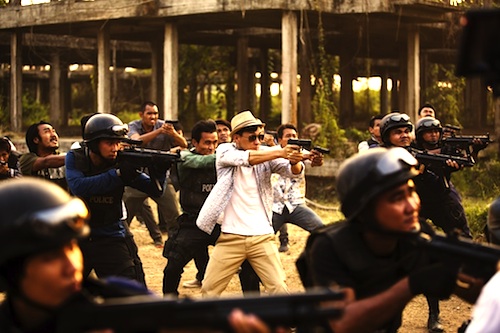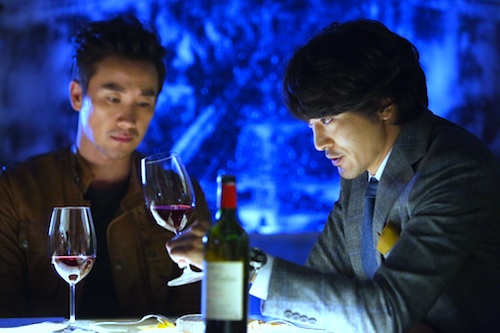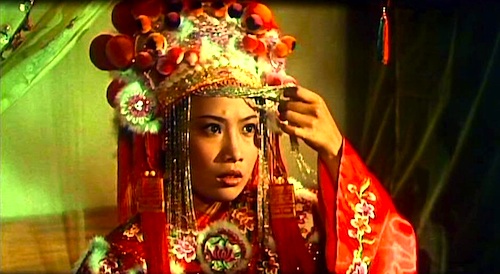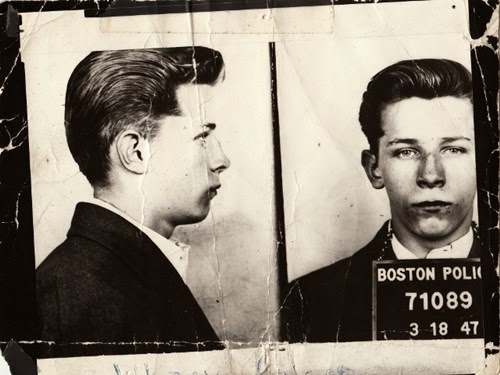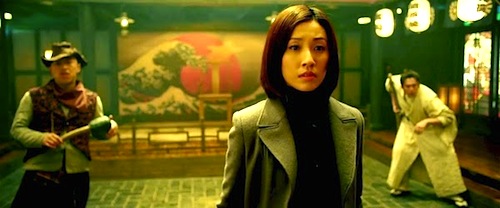By Joe Bendel. Sure, a three hour baseball movie might sound like bizarre overkill, but it is still considerably brisker than many of Al Leiter’s outings for the Mets (we’re all fans here, by the way). It is long, but this scrappy underdog story of tolerance and resilience generally makes good use of its time. Taiwanese and Japanese players will indeed come together on the diamond in Umin Boya’s Kano, the centerpiece selection of this year’s New York Asian Film Festival, which screens Sunday, so forget that World Cup noise.
Despite the spectacular revolt dramatized in co-writer-producer Wei Te-sheng’s Warriors of the Rainbow: Sediq Bale, Japan has consolidated its imperialist hold on Taiwan. Despite the increasing (but unequal) economic ties between the two countries, Taiwan is not where the Japanese go when their careers are on the way up. However, for tightly wound account Hyotaro Kondo, it represents a chance to start over following a vaguely defined public humiliation. Yet, against his better judgment, Kondo soon volunteers to coach the Kagi Agriculture and Forestry Public School’s high school baseball team (called Kano for short).
It was Kondo’s intense coaching style that led to so much grief in Japan, but he has never had a team like this. For one thing, it is an ethnically mixed squad, consisting not just of Japanese and Taiwanese players, but aboriginal and Chinese students as well. They also receive next to no material support from their school. Still, Akira Go, the kid on the mound, has a monster arm. Everyone scoffs when Kondo vows to take the team to Koshien, Japan’s national high school tournament, especially given their ‘O-fer record, but guess what happens next year.
Despite its incontrovertible status as a sports movie, Kano neatly sidesteps a number of the genre clichés. The big game will duly choke you up, but in a far more satisfying way than you expect. Coach Kondo even says there is no crying in baseball, but good luck with that.
Masatoshi Nagase is truly the coach of all movie coaches as the strict but fiercely loyal Kondo. He commands the screen just like Kondo commands his players, but when he lets his softy paternal side peak through, it is always heavy. Oddly, perhaps the most distinctive supporting turn amongst the players is actually Ken Aoki as rival pitcher Hiromi Joshiya, whose trip to see Kano’s dirt playing field for himself while on leave from the Imperial Army supplies the film’s framing device. British based Japanese actor Togo Igawa also adds a note of gruff dignity as Kondo’s former mentor, Coach Sato.
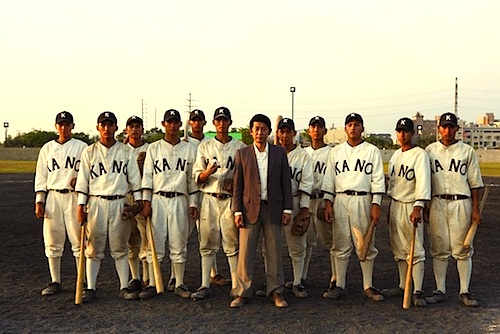
Production designer Makoto Asano’s recreation of 1931 provincial Taiwan looks so real you can practically taste the mud and thatch. It is a high quality period production and probably the most epic baseball movie ever thanks to cinematographer Chin Ting-chang’s sweeping, wide screen visuals. Yet, the on-field camaraderie is not simply a good lesson in sportsmanship. It looks like a conscious attempt at Taiwanese-Japanese rapprochement , strategically coming at a time of high Mainland saber rattling (and frankly that is probably not a bad impulse to act on).
Happily, Kano does not feel like it runs anywhere near its three hours, but there is no getting around the generous helpings of baseball. As great as Nagase is, Kano’s appeal will probably be limited to fans of the game (which includes just about everyone in Taiwan judging from its domestic box-office). Earnest, entertaining, and appealingly old fashioned, Kano is recommended for lovers of baseball and those who follow Japanese and Taiwanese cinema when it screens Sunday evening (6/29) at the Walter Reade Theater, as the centerpiece of this year’s NYAFF.
LFM GRADE: B+
Posted on June 29th, 2014 at 12:14am.
